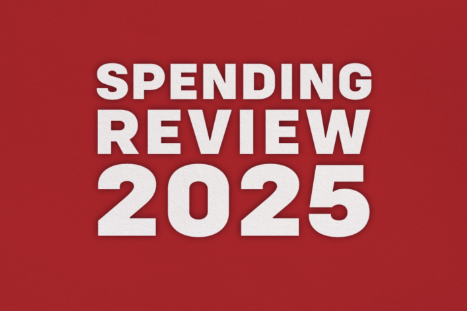Following the Chancellor’s Comprehensive Spending Review, the UK accountancy bodies have their say!
ICAEW – more questions than answers for HMR the professional accountancy bodies
Frank Haskew, ICAEW Head of Taxation Strategy, said: “HMRC has been allocated money to hire nearly 8,000 more staff, an increase of a further 600 people since the Spring Statement. However, they will focus on compliance and debt management rather than front-line services, which is a missed opportunity to improve services for all taxpayers.
“We need to understand exactly how HMRC will reach its target that a minimum of 90% of taxpayer interactions by 2029-2030 will be by way of digital self-service. It remains unclear what further measures will be introduced to achieve this target, other than the proposed use of AI to help taxpayers with their enquiries and raise productivity, and allowing taxpayers to easily get the information they need without having to call or write to HMRC.
“In addition, HMRC says it will eliminate most outbound post, with limited exceptions such as letters which generate revenue for the Exchequer, thereby reducing the number of letters HMRC sends out by 75% and making savings of £50 million a year by 2028-29. To meet this objective, a robust and user-friendly alternative system will need to be put in place and cater for agents, otherwise HMRC will merely have reduced its own costs at the expense of a poorer service to taxpayers. As yet, the details of how this will be achieved remains to be seen.
“Finally, the question of what will happen to inbound post remains, and the need to provide taxpayers and agents with the confidence that their information has been received and logged promptly by HMRC and that it is being acted upon. We should have a better idea of the proposed developments when HMRC publishes its digital transformation roadmap.”
CIPFA – long-term sustainability remains unresolved for many public services
CIPFA Chief Executive Owen Mapley, said: “The government’s Spending Review offers a mixed bag. While additional funding for the NHS and defence – both widely anticipated – has been confirmed, many unprotected areas will find little comfort in today’s announcements. For frontline services, significant pressures and concerns around long-term stability are likely to endure.
“Local government will finally benefit from a longer-term funding settlement, which is welcome. However, serious concerns remain about the sector’s overall sustainability. Critical challenges – such as funding shortfalls for social care – have not been addressed in this review.
“While the additional investment in the NHS is undoubtedly positive, the demands on these resources will be immense. Delivering the radical transformation promised through technology and modernisation will be vital if the NHS is to get back on a sustainable footing and successfully implement the upcoming 10-year health plan.
“Crunching the Spending Review numbers, and considering the multiple documents released alongside the review, may reveal a clearer picture. CIPFA looks forward to considering the details over the coming days and weeks.”CIOT
CIMA – a potential to boost productivity
Andrew Harding, FCMA, CGMA, Chief Executive – Management Accounting at The Chartered Institute of Management Accountants, said: “Businesses thrive on certainty, and the Chancellor’s Comprehensive Spending Review, particularly the focus on key infrastructure projects and the funding boost for R&D, has the potential to boost productivity and create a more favourable environment for growth. Let’s hope this positive momentum is not lost by the temptation to place additional tax burdens on businesses in the upcoming Autumn Budget.”
Find out more about CIMA’s policy recommendations on Industrial Strategy, Productivity, and Public Spending here.
ICAS – questions remain on funding commitments
Bruce Cartwright CA, CEO of ICAS, said: “While we commend the aspirations of the UK Government’s spending review, particularly around increased funding for education, the NHS and for social housing and other capital projects, we yet again find ourselves reflecting that Reeves’ statement leaves us with more questions than answers as to where the money will come from to pay for this.
“Businesses need certainty, as do public sector organisations. Uncertainty and barriers to effective budgeting can have negative consequences for the labour market, inward investment and business growth. Will the UK have to wait a further third of a year to find out? The Autumn Budget awaits.
“The Chancellor’s emphasis on infrastructure, science, and technology investment reflects important national priorities, but intentions alone are not enough. Without clear focus on productivity and long-term value, there is a real risk of under-delivering on these commitments.
“While investment spending is welcomed, effective financial oversight is critical. Capital projects, including Sizewell C, must be rigorously managed to prevent the delays and overspending that have plagued similar programmes like HS2. Additional funding for sectors such as health and defence, while reflecting Labour’s spending pledges, cannot be allowed to bypass scrutiny or excuse inefficiencies. Smart public spending must be matched by smart public management.
“A longer-term strategic approach to managing finance, planning and priorities is needed. To keep revenue and capital spending under control, we need robust financial management and scrutiny. Neglecting strong financial practice increases the risk of poor value for money.
“We also expect the need for a coherent approach to preventative spending. Local innovations that deliver better outcomes and reduce long-term demand must be identified, measured, and scaled, not left siloed or ignored.
“As healthcare is a significant consumer of resources and facing an upward trajectory of demand from an ageing population, reform is needed to ensure the service is fit for the future. Shifting health focus from a short-term ill-health, acute response mode to a longer-term preventative model is essential to manage future demand levels. Preventative healthcare needs to grow to a sufficient scale to have a meaningful impact on the population and change behaviours.”
CIOT – devil in the detail
John Barnett, CIOT Vice President, commented: “This is a significant increase in current spending for HMRC, as promised by the new government. It is important it is spent well to make real progress in improving current HMRC customer service levels.
“HMRC are right to be aspiring to become a ‘digital first’ organisation but digitalisation has to work for taxpayers and agents, as well as for HMRC. Moving from 70% of customer interactions being digital to 90% is a big step up. It will need existing digital services to be improved, the gaps in digital services to be closed, and the level of reassurance for those users of digital services that they have done the right thing to be improved too. Plans to make such digital service improvements need to be feasible with HMRC’s plans to improve their own underlying infrastructure. Traditional phone and post services need to be retained during the digital transition – and not be withdrawn or left to wither, further affecting the quality of HMRC customer service, on the basis that there will be digital functionality at some point in the future.
“HMRC must not simply reduce the supply of support, they need to reduce demand. Our study last year, jointly with ICAEW, found that more than a third of attempts to contact HMRC are to chase progress on existing matters. The need for these could be eliminated by investing in an external tracking mechanism, enabling taxpayers and agents to track that HMRC have received their correspondence, to see where in HMRC it is being handled, and to check progress. Progress chasing should be a key function of any new digital service.
“Today’s announcements raise a number of questions. HMRC are going to ‘eliminate all outbound post, with limited exceptions such as letters which generate revenue for the Exchequer’. HMRC need to reassure us that protection will remain for those who are digitally excluded.
“If HMRC are encouraging greater use of email and other digital services, they need to make sure they are providing secure digital ways to contact HMRC and not drive more calls to HMRC telephone helplines. Our evidence highlighted a significant appetite to communicate with HMRC digitally, but at present security issues means this is often not possible. Work in this area must be a priority.
“HMRC has worked with the Office of Value for Money to identify £773 million of technical efficiencies. HMRC need to set out what these efficiencies will be to reassure taxpayers and advisers who can sometimes see ‘efficiencies’ as a euphemism for cuts.
“We look forward to seeing further details of the government’s plans in the Digital Transformation Roadmap. To be fully effective the roadmap needs to be co-created with stakeholders, learning lessons from the implementation of Making Tax Digital.”




